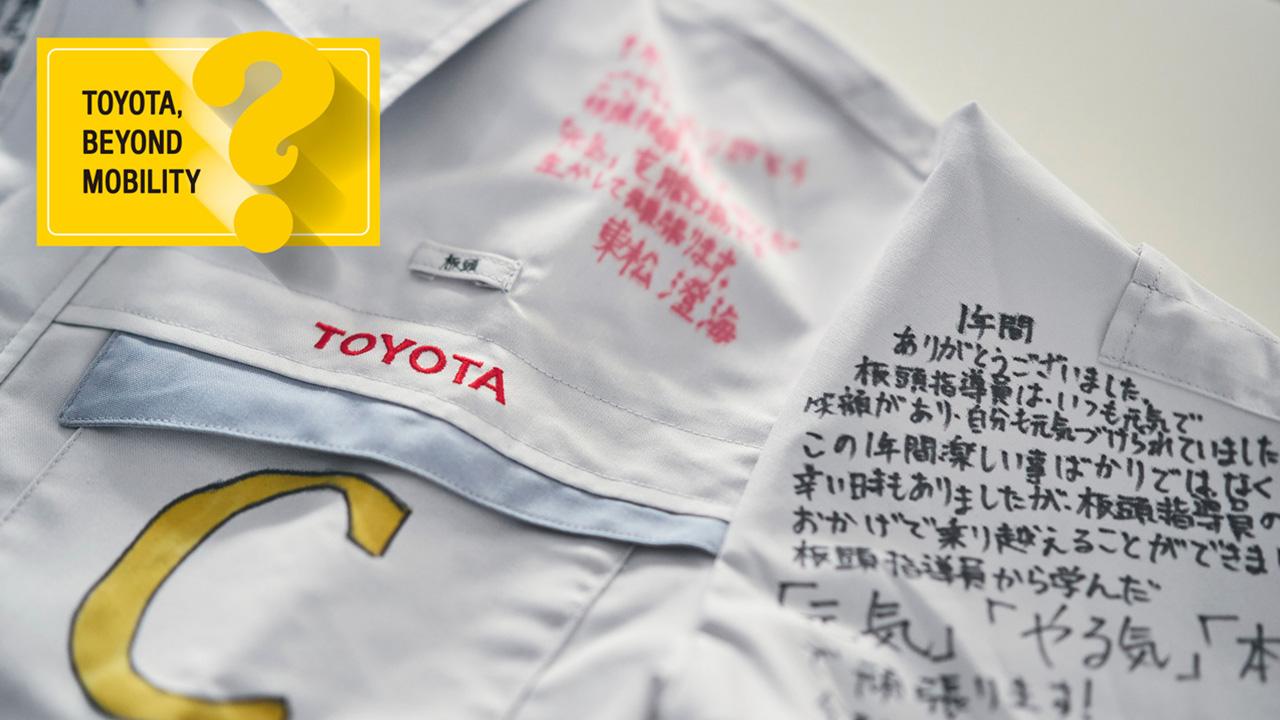
A series showcasing Toyota's research in non-automotive fields. This time, we look at a Toyota school that is full of surprises!
Is our teacher telling the truth?
“Someone once made an anonymous complaint about me that ‘the teacher seems to be lying to us.’”
So says Takahiro Itazu, an academy graduate and former instructor who appeared in a past Toyota Times video.
Takahiro Itazu, Die Casting & Forging Division
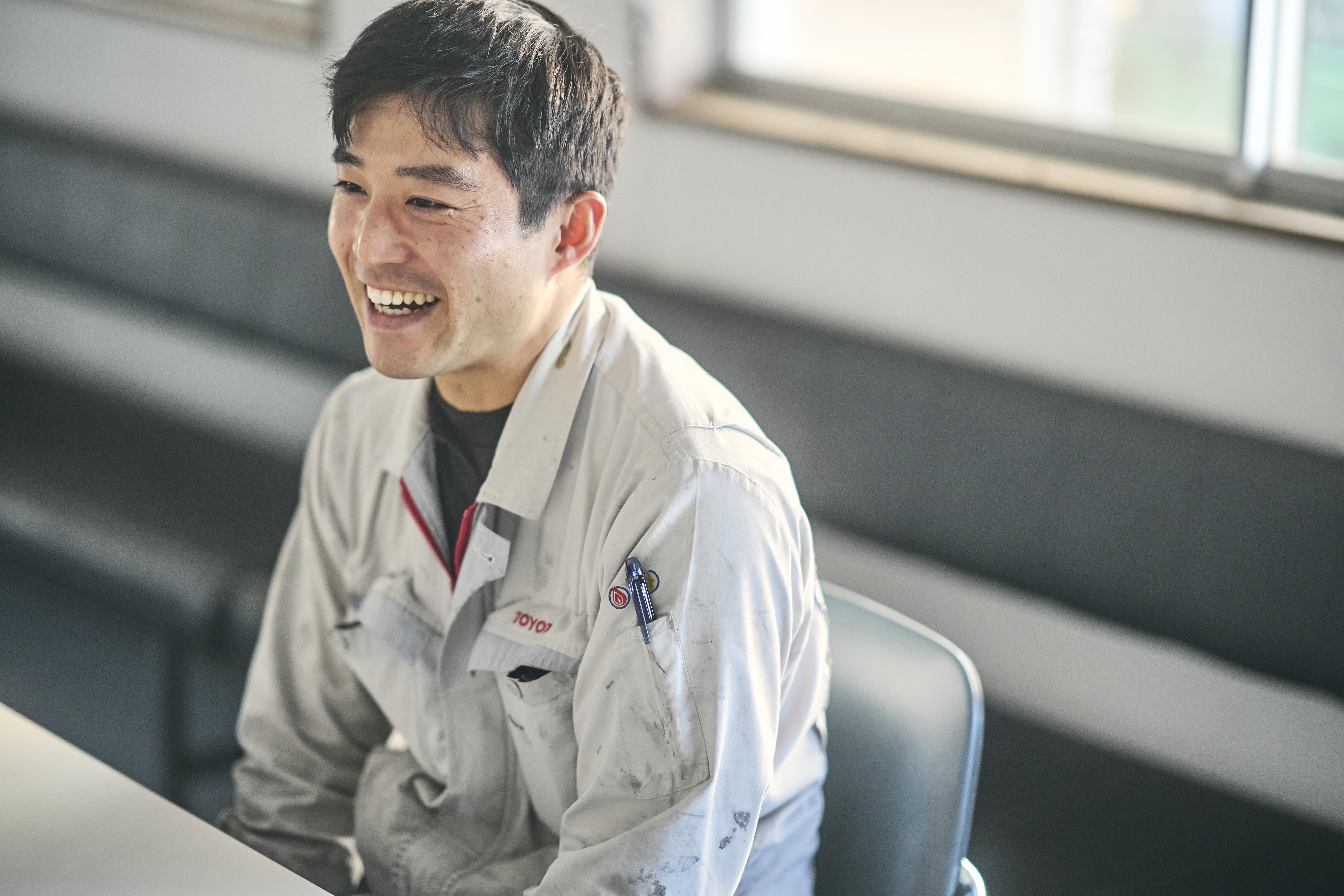
When I was appointed as an instructor, I wondered, “Why me?!” At home, my kids asked if I was changing jobs to become a schoolteacher.
I wasn’t confident of doing a great job, but I jumped at the chance to transform myself.
However, Itazu’s inexperience would cause him no end of suffering. When he first took up the post, he didn’t know how to properly connect with the trainees and was unable to engage with them on a personal level.
This came to light in an anonymous survey, which contained the harsh comment shared above.
Not only that, while serving as an advisor for the baseball team, his players went so far as to boycott practice.
Looking back, Itazu says he “realized the difficult reality of teaching.” Undeterred, he continued his efforts in one particular area.
Itazu

If nothing else, I felt confident that I could teach them to greet people properly. Not just to greet but to do so in a way that makes people feel good.
It doesn’t matter if they don’t return the greeting. The point is to make the other person feel ready to take on the world.
To set an example, I greeted the trainees as they filed in every morning. I looked them in the eye, bowed my head, and delivered every word clearly, with feeling. I did this for three years.
Even in the frosty depths of winter, he threw on a yellow jacket and carried on the routine.
When the time came for Itazu to return to his former workplace after three years as an instructor, one trainee even asked for the yellow jacket so they could keep the greeting movement going.
Other pupils were also inspired by the way Itazu gave his all in everything he did.
Ruito Watanabe had worried about his third-year class being led by Itazu, whose personality was “very different from my quiet self.” Yet even after graduation, Itazu was the first person that came to mind whenever Watanabe needed his spirits lifted.
For many trainees, Itazu’s example served as a source of encouragement.
Meanwhile, Itazu himself felt that the trainees had not liked him, until he received surprise messages from his graduating class.
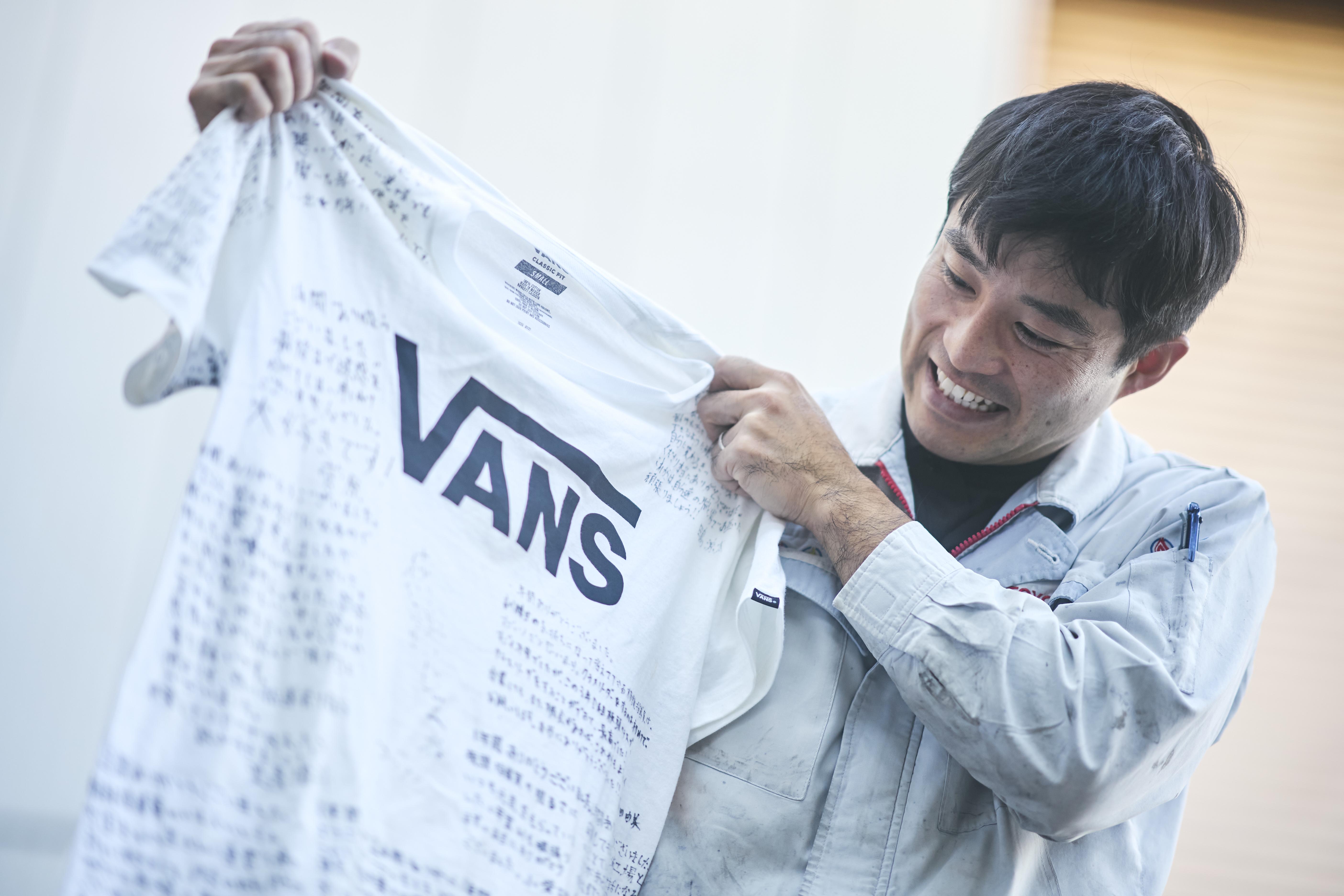
“I was thrilled. This is a true treasure. Being an instructor was an invaluable experience, and I will never forget the kids I taught,” says Itazu, smiling as he looks back over each signed name.
Growing through teaching
Guiding young people through rebellious adolescence and engaging with Gen-Z teenagers no doubt comes with its share of difficulties.
And yet, the academy breeds a strange sense of unity, with instructors being invited out to eat with former pupils. Itazu explains the reasons behind the camaraderie.
Itazu
We know that, after graduation, our pupils will become our colleagues in the workplace. That may be why we can develop a deeper affection than at regular schools.
Like the saying “a sound mind in a sound body,” sound cars can only be built by sound people. That means not drifting mindlessly through work but pouring your passion into monozukuri. It’s important to convey this by showing how we lead our lives.
Creating a team to achieve a goal—I feel that this kind of organization-building is something I learned from the trainees.
“I can sense how much he has grown through his experience as an academy instructor,” says Senior Expert Masahiro Sakai, Itazu’s supervisor at the Die Casting & Forging Division. “In March, he became team leader, and I look forward to seeing how he goes.”
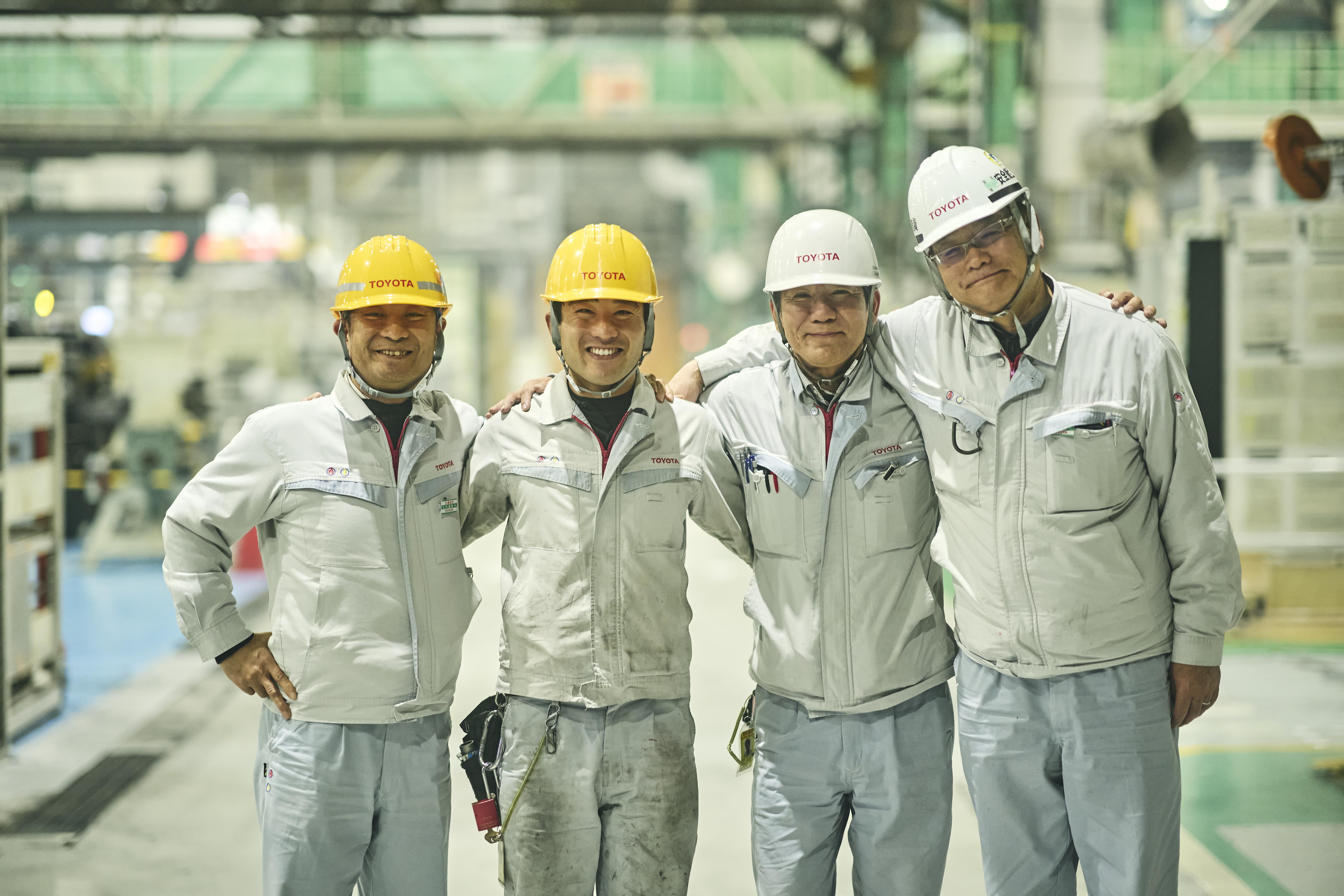
“It’s not just the trainees, but also the instructors who have a chance to grow through the teaching experience. That’s the biggest reason for having employees serve as instructors,” says Yamashita, the academy’s director.
We also heard from another former instructor.
Kanako Nonaka, a team leader at the Quality Control Division, says that being a woman allowed her to bring something unique to the instructor role.
Kanako Nonaka, Quality Control Division
I was really pleased when female trainees told me they were glad to have a female instructor at the school and confided in me about concerns unique to women.
Completing three years as an instructor gave me both confidence and a fresh perspective, teaching me how to make decisions from a more senior position.
Parents recognize the academy’s advantages
On February 20, the Toyota Technical Skills Academy held its graduation ceremony.
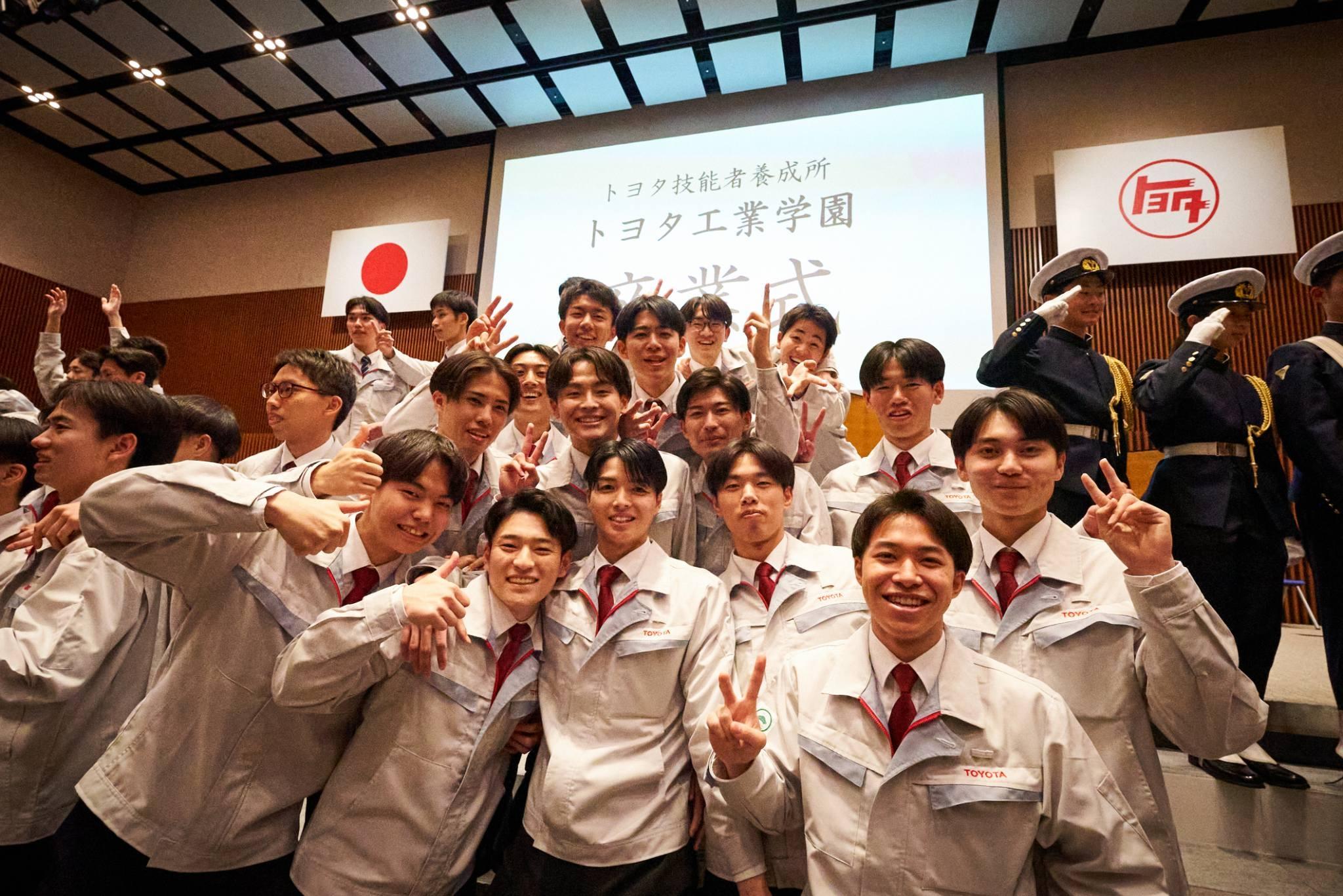
“Unlike other high schools, students here engage with working adults, which I think helped my son mature more quickly,” commented one parent who attended.
Trainees and instructors—despite their different roles, both are Toyota employees, and both grow through the process of teaching and being taught.
Building on a history of over 85 years, the Toyota Technical Skills Academy is now working to assemble more diverse instructors, including those with digital skills.
The task of “developing people” continues to evolve in new and exciting ways.

